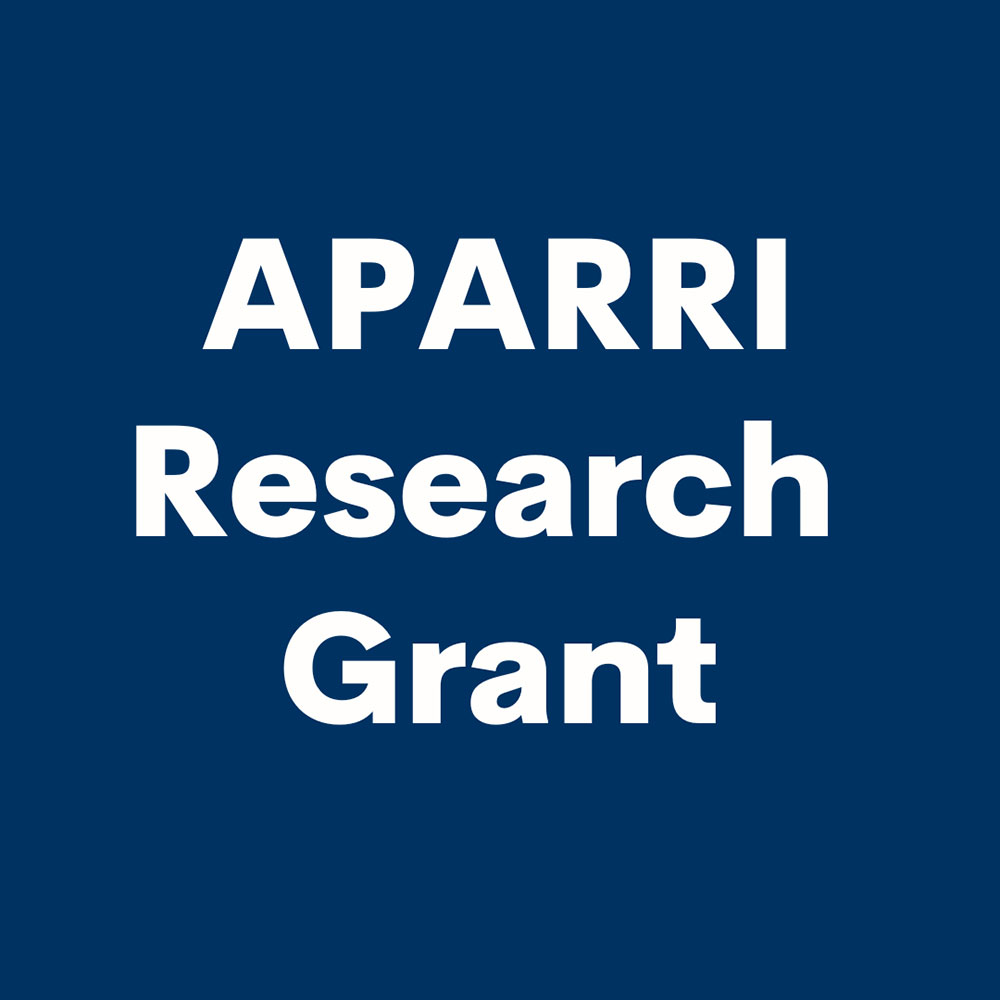
A History of the Swaminarayan Sampraday in North America
Bhakti Mamtora
Assistant Professor, Religious Studies, South Asian Studies
The College of Wooster
This project examines the history of the Swaminarayan Sampraday, a Hindu devotional tradition founded by Swaminarayan (1781-1830) at the beginning of the nineteenth century in the western region of India, now known as Gujarat, in North America during the last fifty years. This project expands research on place-making, civic engagement, and religious expansion through the use of ethnographic and archival research methods. By conducting individual and small group interviews and analyzing, newspaper articles, sectarian publications, and religious paraphernalia, this project aims to uncover how individual conceptions and experiences of gender, race, ethnicity, caste, and socioeconomic class inform identity and community formation in the diaspora.
Keywords: Civic engagement, Community formation, Diaspora, Hinduism

American Muslim Humor and the Politics of Secularity
Samah Choudhury
Assistant Professor, Islamic Studies
Ithaca College
American Muslim Humor and the Politics of Secularity will be the first book-length analysis of contemporary American Muslim standup comedy as an embodied performance of secular communication. It explores how a sense of humor has come to be thought of as a civic and cultural expectation in secular societies and why Muslims are consistently figured as lacking this critical comportment of modern personhood. By examining the standup comedy routines, television shows, and films produced by South Asian American Muslim comedians between 2010 and 2020, this project seeks to understnad how these performers cultivate a funny Muslim self that displaces stereotypes about Islamic terrorism, violence, and misogyny while also providing a representation of the Islam that ultimately aligns with – and is limited to – hegemonic state visions of multiculturalism and diversity.
Keywords: Muslim, Performance, Secularism, South Asian, Stereotypes

Ethnic Churches and Racial Attitudes: A Comparative Study of Chinese- and Vietnamese-American Congregations in Houston, TX
Bianca Mabute-Louie
Graduate Student, Sociology
Rice Univesity
This research project interrogates the extent to which religion shapes the racial attitudes of Asian American Christians. Christianity influences the ways Asian Americans adapt to the U.S. and their involvement in ethnic churches shapes their perceptions of race and racism. This project interrogates how Chinese- and Vietnamese-American Christians, two of the largest Asian American groups, employ cultural-religious explanations in their conceptualizations of racial discrimination, racial boundaries, and anti-Blackness in this comparative congregational study. Overall, this study aims to contribute to the scholarly conversation on race, religion, immigration, and politics, with public implications on immigration, Asian American civic engagement, and broader movements for racial justice.

How Religion Shaped Sexual Mores Among Japanese American Women, 1920s-1930s
Chrissy Lau
Assistant Professor, History
California State University, Monterey Bay
This book project focuses on a history of religion and sex/sexuality in Japanese American communities during the 1920s and 1930s. The first chapter will explore how the Young Women’s Christian Associations and the Japanese Christian Student Associations collaborated with the social hygiene movement to shape sexual mores among Japanese American women. Drawing from archival research on digitized Rafu Shimpo at the Hoover Institution Archives, the digitized YWCA of the USA records at Smith College, and the digitized Social Hygiene Association records through the University of Minnesota.
Keywords: Gender, Japanese American, Sexuality

Identity, Community, Belonging: Imagining the Creation of a Postcolonial/Asian American Kachin Christian Community
Htoi San Lu
Graduate Student, Religion
Vanderbilt University
This dissertation examines theological, ecclesiological approaches to Christian community, identity, and belonging from an Asian/American and postcolonial feminist perspective: specifically examining how the Kachin Baptist community in the U.S. constructs their ethno-nationalist religious identity in changing geopolitical contexts. The Kachin are an indigenous, minoritized ethnic group who began to migrate from Burma/Myanmar to the United States in the 1950s. Divisions within the U.S.-based community emerged between 2011 and 2014, a period marked by intensified militarized conflict in Burma which resulted in thousands of civilians killed and more than 100,000 Kachin displaced. Kachin immigrants and resettled refugees in the U.S. have debated intensely about the contours of their community: differing about alliances and loyalty (to Kachin churches in Myanmar). I argue these divisions are best understood by examining the influential role of American Baptist missionaries and the Burmese sociopolitical context beginning in the 19th century to the present.
Keywords: Baptist, Christianity, Churches, Diaspora, Immigration, Kachin

Model Christians, Model Minorities: Asian Americans, Race, and Politics in the Transformation of U.S. Evangelicalism
Jane Hong
Associate Professor, History
Occidental University
This book project uses the history of Asian American evangelicals to explore the changing relationship of race, religion, and politics in post-civil rights America. Drawing from archival research and over one hundred oral history interviews, the book charts how post-1965 Asian (along with Latinx) immigrants and their children have changed historically white evangelical institutions and politics. In so doing, the book connects and explores the intersections of two developments that have reshaped racial and religious politics in America over the past fifty years: the rise of the Religious Right and the demographic transformations resulting from the 1965 Immigration and Nationality Act.
Keywords: Asian American, Evangelical, Immigration, Latinx

(Re) Presenting Sikh American History: The Rise of Stockton Gurdwara as the Capital of Sikhi in the United States
Tejpaul Bainiwal
PhD Candidate, Religious Studies
University of California, Riverside
Sikhs have been a part of the social fabric of the United States for more than a century. Most, if not all, studies of Sikhs in this country follow a similar trajectory, which includes initial immigration at the turn of the twentieth century, discrimination and hardships faced by Sikh immigrants, the Ghadar movement, Punjabi-Mexican families, and prominent Sikh Americans such as Bhagat Singh Thind and Dalip Singh Saund. Scholars have focused on a socio-political descriptive analysis of the immigration and subsequent settlement of Sikhs throughout the early 20th century. Despite the fact that Sikhs are a religious group, a thorough analysis remains to be done on the role of religion. This projects seeks to redefine these historical incidents in Sikh American history through theories of racialization while emphasizing the role of religion and placing them into a larger context of identity; power, resistance, and liberation.
Keywords: Diaspora, Immigration, Sikh, Sikhism
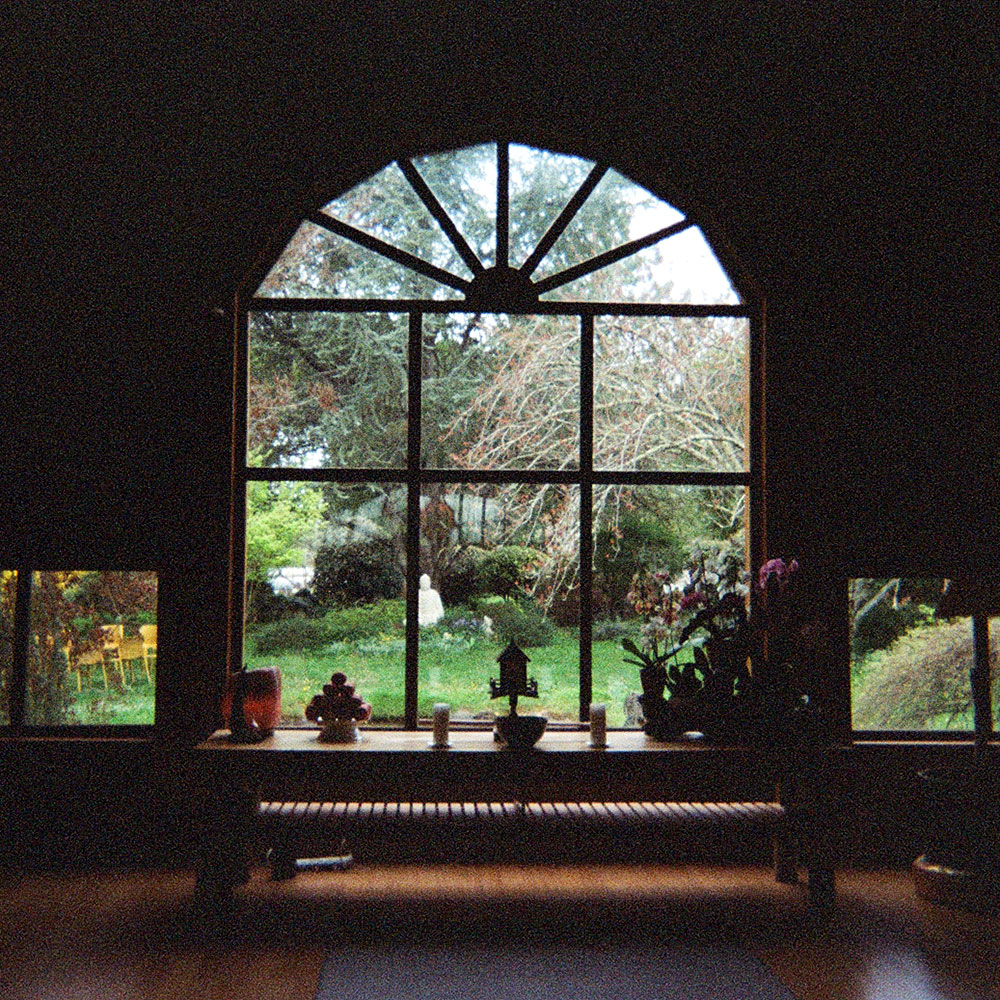
Refugee Reconnections: Vietnamese-American organizing in the California Carceral State
Victoria Huynh
Graduate Student, Ethnic Studies
University of California, Berkeley
My project draws from Thich Nhat Hanh’s archive of untranslated writings and oral histories with his monastic students to theorize a framework of ancestral memory in the Vietnamese diaspora. While Thich Nhat Hanh is broadly known as a Zen Buddhist master and a pioneer of Western mindfulness, the project re-centers his ancestral relationships to Vietnam, which he understood as the root of his political and spiritual teachings. Specifically, the project examines Vietnamese practices of ancestral veneration at Plum Village Monastery (in France), Deer Park Monastery (in California), and Tu Hieu Pagoda (Thich Nhat Hanh’s root temple in Vietnam); alongside Thich Nhat Hanh’s memoir writings at each of these sites. While these ancestral rites are meant for the individual dead, I argue that they also function as Thich Nhat Hanh’s intervention against the grief of his own exile, and a means of counter-memory for the
Vietnamese diaspora.
Keywords: Activism, Healing, Refugee, Vietnamese American
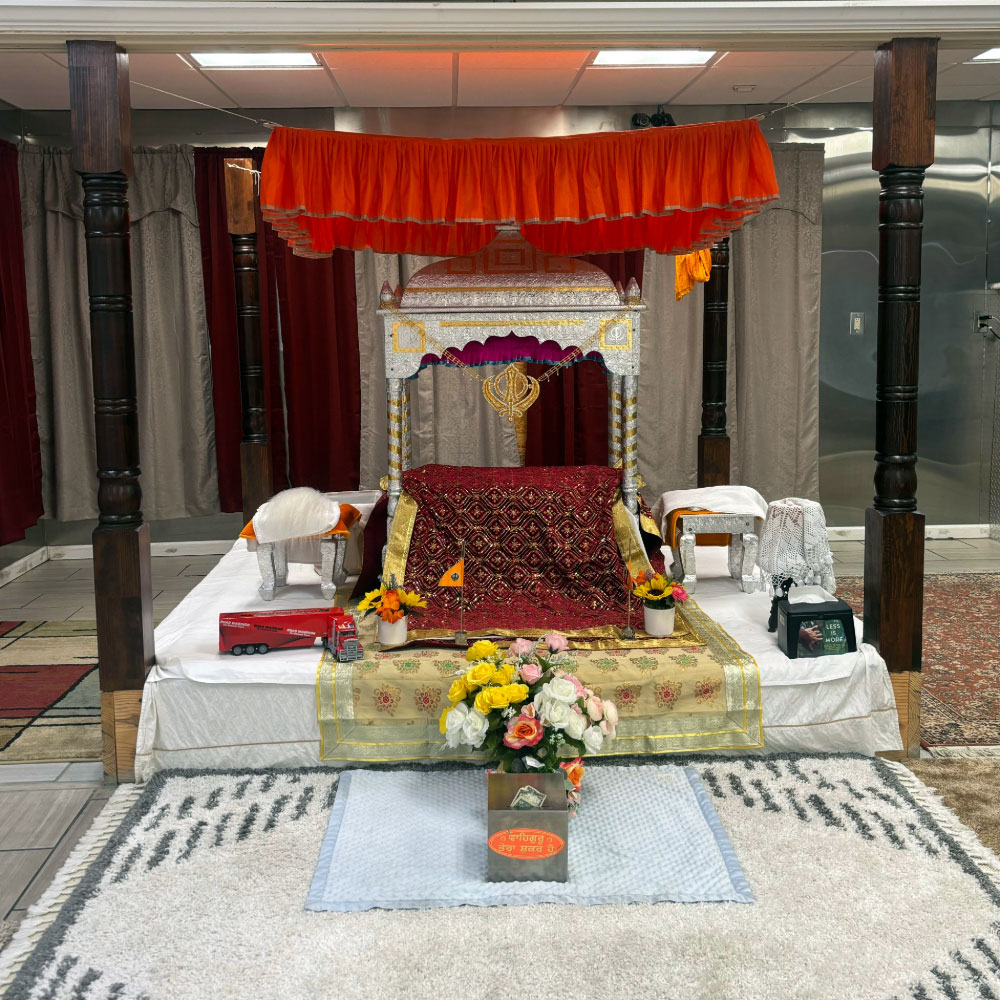
Routed Communities: Race, Religion, and Labor in the Punjabi American Trucking Industry
Loveleen Brar
PhD Candidate, American Culture
University of Michigan
This project examines the rising number of Punjabi Sikh truck drivers, and the Punjabi owned truck stops, called dhabas, that have popped up across the major US interstates. While narratives about Punjabi Sikhs in the trucking industry have focused on their entrepreneurial successes, they have ignored the xenophobic and nativist sentiments Punjabi Sikhs face within the industry. This project explores how Punjabi Sikhs have turned to each other to find safety on the road. My dissertation asks, what network of care are created and recreated in the diaspora? In what ways does the dhaba become a site for diasporic culture, faith, and survival? Using ethnographic methods, this project will look at two truck stops that have constructed makeshift Sikh temples on-site. The objectives of this project are to understand how the dhaba functions as a site of spiritual safety, and how Sikh truck drivers make up a mobile congregation.
Keywords: Diaspora, Labor, Sikh, Xenophobia
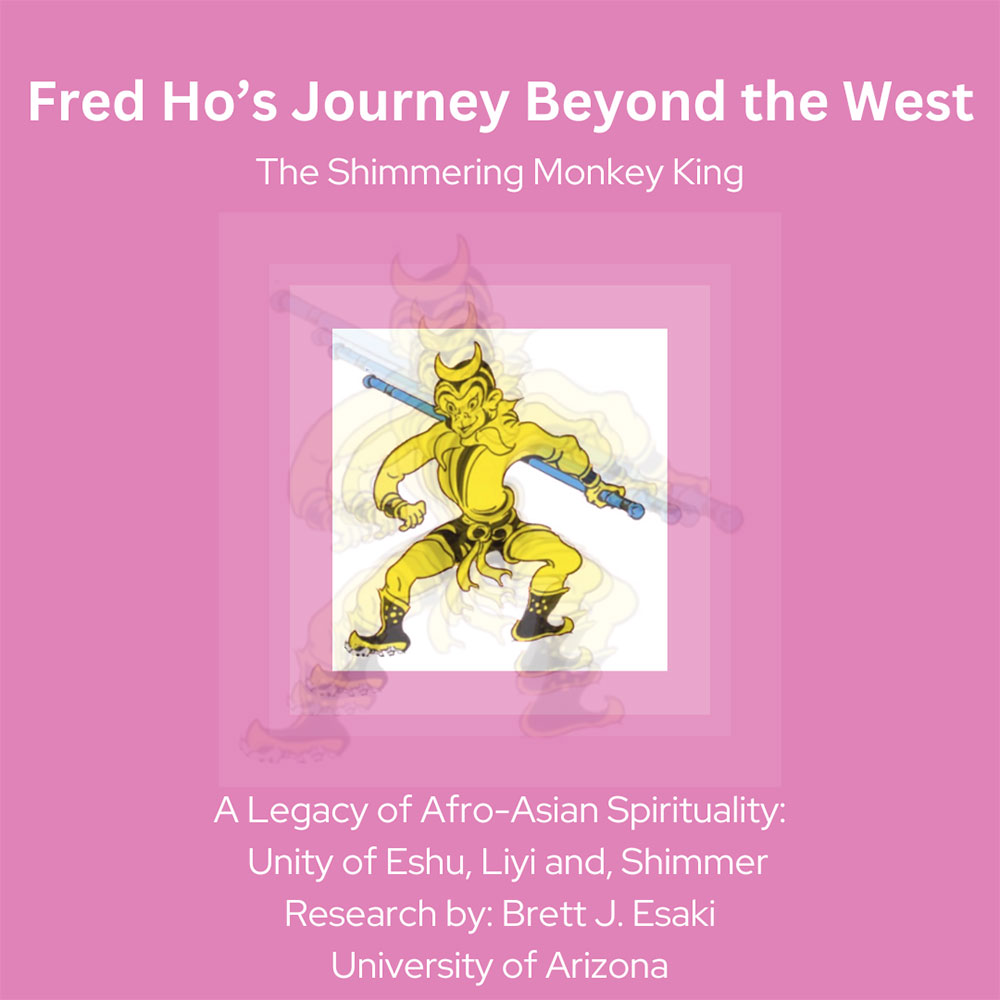
Spiritual Legacy of Fred Ho: Monkey as Matriarchal Socialist Spiritual Transformation
Brett Esaki
Assistant Professor of Practice
Arizona State University
Fred Ho was a major figure in Afro-Asian solidarity through music, community organizing, and scholarly contributions. In his theatrical production of Journey Beyond the West: The New Adventures of Monkey, Ho showcases a unique combination of music, martial arts, and spirituality. This proposed project consists of interviewing the writers, cast, crew, and musicians of his play, who are now in Brooklyn and Chicago along with archival research. Ho was notoriously dedicated to practical and political ideals. This project seeks to discover the experience of spiritual transformation, if any, of the writers, cast, crew, and musicians as they trained and performed the martial arts opera.
Keywords: African American, Asian American, Performance

Spiritual Beliefs and Buddhist Practices: Narratives of Survival, Aging, and Community-Building Among Cambodian American Women in Long Beach, California
Sophea Seng
Assistant Professor, Asian American Studies
California State University Long Beach
Out of the turmoil of war, displacement, and resettlement, over the past four decades, Cambodian refugees have rebuilt lives through the vehicle of Buddhism. Drawing upon participant observation and ethnographic life histories with Cambodian survivors, this project explore the key role of women refugees in sustaining the community through Buddhist practices. The central question is: How does religion mediate Cambodian women refugees’ sense of community belonging, as well as their relationship with the “homeland” and wider diaspora? In Cambodia, one of the first institutions the Khmer Rouge destroyed was Buddhism. Out of 65,000, fewer than 100 monks survived the 1975-79 Khmer Rouge genocide in which 1.7 million perished. From the time that Cambodia fell to the Khmer Rouge, those in exile sponsored monks in order to rebuild temples and restore a sense of community. Even though some Cambodians have converted to Christianity, Theravada Buddhist temples remain places where community thrives.

The Romance of American Democracy: Asian American Fiction as Secular Scripture
Kathy Chow
PhD Candidate, Religious Studies
Yale University
This dissertation research is on the formation of American democratic community as narrated in the genre of the romance. Arguing that the romance of American democracy is the secular scripture of American political life, this project traces the origin of the romance of American democracy to the American Romantics (Thoreau, Emerson, and Whitman); and then then track how the romance has been taken up in Asian American fiction. Two chapters examine the remarriage plot in the Daniels’ Everything Everywhere All At Once (2022) and Chang-rae Lee’s Native Speaker (1995), and the romanticization of the American landscape in C. Pam Zhang’s How Much of These Hills Is Gold (2020) and Lee Isaac Chung’s Minari (2020). By juxtaposing American Romanticism and Asian American fiction to theorize the secular scripture of democracy, the project pioneers a new method in Asian American religious studies that offers an alternative beyond liberal multicultural projects.
Keywords: Asian American, Democracy, Literature, Secularism
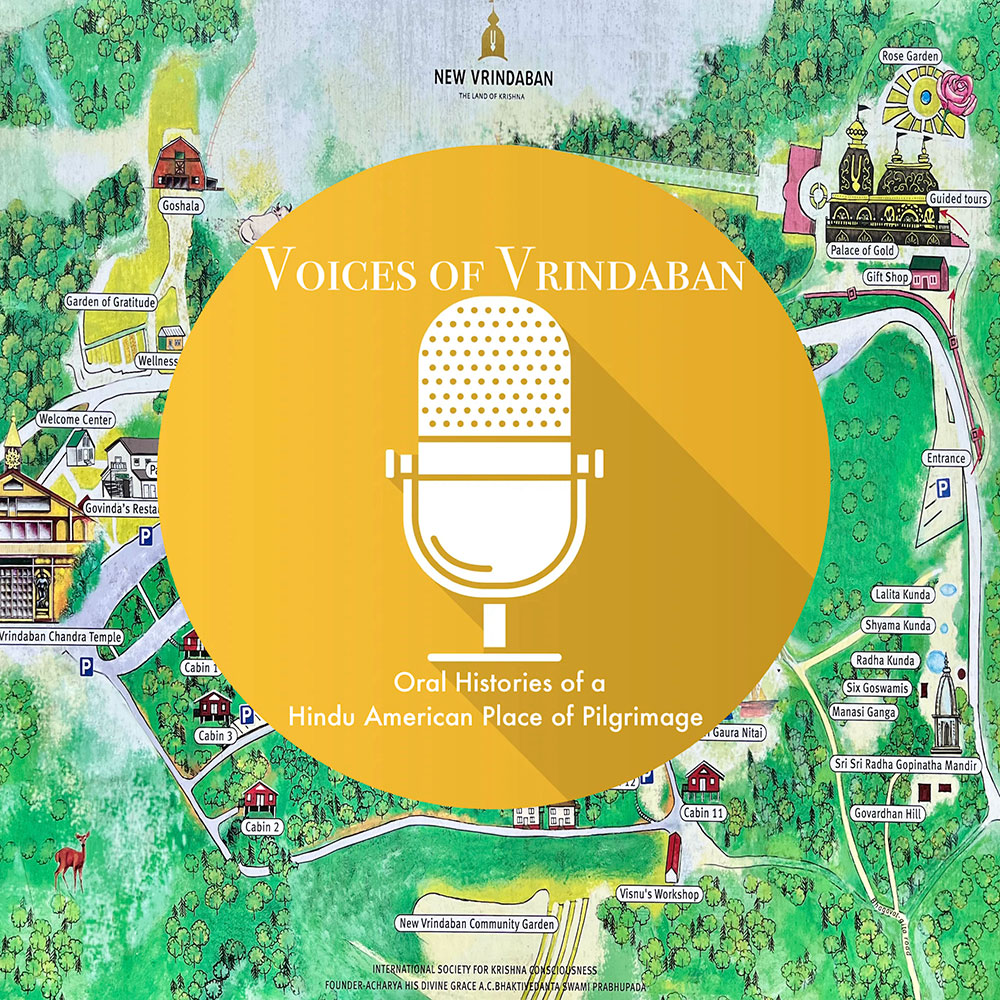
Voices of Vrindaban: Oral Histories of a Hindu American Place of Pilgrimage
Vineet Chander
EdD, Assistant Dean, Hindu Life
Princeton University
This project focuses on a place of pilgrimage in the United States—an intentional spiritual community, nestled in the Appalachian foothills of West Virginia, that is rooted in Hinduism’s Vaishnava tradition, and has also become a major tourist attraction for the Hindu diaspora in America. Since its founding more than fifty years ago, New Vrindaban has served as the flagship rural outpost for the International Society for Krishna Consciousness (ISKCON), known more colloquially as the Hare Krishna movement. As one of the first constructed diasporic Hindu sacred spaces in the United States, inspired and founded by an elderly Indian immigrant who was among a handful of Hindu and Buddhist teachers who brought Eastern wisdom traditions and practices to the west in the 1960s and 1970s, this community offers a fascinating and compelling context within which to interrogate the complex (and sometimes challenging) interweaving of faith, race, culture, ethnicity, and identity that marks the history of Asian Pacific American religions in America. While the community’s pioneering devotees were almost all non-Indian converts to the faith, today Hindu diasporic pilgrim families form the bulk of visitors to the community—now increasingly joined by yoga practitioners and teachers, meditators, and spiritual seekers from a variety of cultural, ethnic, and racial backgrounds. The project intentionally uses oral history as a method to uplift the voices of Hindu Americans—as well as “American Hindus”—in telling the multivalent stories that, together, illustrate the birth and evolution of this pilgrimage site.
Keywords: Diaspora, Hinduism, Oral History, Pilgrimage site, Vaishnavism
